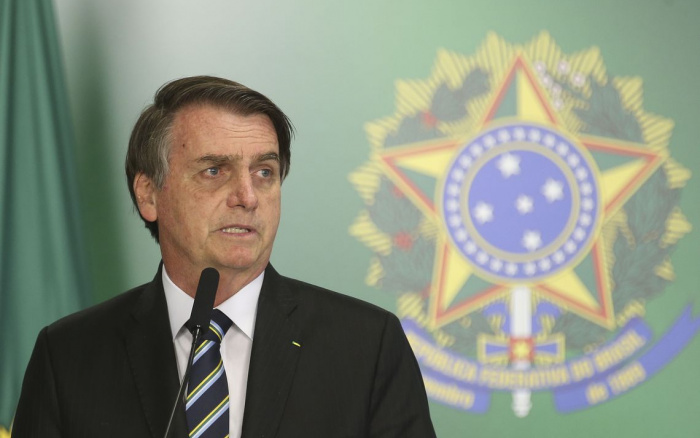Você está na versão anterior do website do ISA
Atenção
Essa é a versão antiga do site do ISA que ficou no ar até março de 2022. As informações institucionais aqui contidas podem estar desatualizadas. Acesse https://www.socioambiental.org para a versão atual.
100 days of socioenvironmental setbacks
quinta-feira, 11 de Abril de 2019 
Esta notícia está associada ao Programa:
In this article, the executive secretary of ISA, André Villas-Bôas, evaluates and critiques the measures taken by the Bolsonaro administration up until now regarding the socioenvironmental agenda. Article originally published in the digital version of Folha de S.Paulo, on 10/4/2019.
Never before have we seen more mistakes, friction and confusion in the first 100 days of an administration. The president of the republic, his children and some cabinet ministers have taken it upon themselves to sow conflict simultaneously, and foster, seemingly without purpose, accusations between groups that supposedly support him. With a bizarre ideological bent, entire ministries and policies have not only been dismantled, but become the object of ridicule.
This process began on the very first day of the new administration, with the enactment of Provisional Measure no. 870 and decrees that reordered (or rather disordered) structures, roles and ministerial agencies, with devastating effect on the socioenvironmental agenda. The Provisional Measure is still awaiting passage into law and could still be amended by congress. We hope at least parts of the measure are removed.
Up until now, the Minister of the Environment, Ricardo Salles, has only shown an interest in criminalizing civil servants and environmentalists—despite his conviction for administrative misconduct for filing a fraudulent management plan for a Conservation Unit. Already very much demoralized in international forums on the environment, Salles is bent on blackmailing the international community, by advocating that Brazil implement measures to reduce greenhouse gas emissions and deforestation only if it receives compensation, subverting the country’s leading role on climate change for one of opportunism. The minister’s attempt to use the greatest environmental humanitarian disaster in our history, in Brumadinho (MG), to propose legislation relaxing environmental licensing, was truly pathetic. It is never too late to remember that one of the causes of the catastrophe was the easing of controls provided for in the licensing of one of the tailings dams.
During the first 100 days of this administration, no significant operation has been conducted against deforestation and the number of fines issued by Ibama is the lowest since 1995. Meanwhile, data continue to emerge that show a rise in the rate of forest destruction and in the number of invasions of protected areas, in addition to rising violence against environmentalists, quilombola dwellers, indigenous peoples and settlers.
On the same front, by promoting climate skepticism, the dismantling of environmental policies and diplomatic sectarianism, Bolsonaro is undermining his own plans, founded on the export of agricultural commodities and the strengthening of the farm lobby. This year, a significant decrease in the agricultural harvest is predicted precisely because of climate extremes, in addition to other negative impacts on the sector in the long term, according to projections by the scientific community and Embrapa. On the other hand, the international market continues to place increasing demands on the environmental aspects of farming.
With the economy treading water and the electoral platform of fighting corruption on the back burner, the percentage of Brazilians who rate the administration as excellent or good has fallen by 15%, from 49% to 34%, between January and March, according to IBOPE. But the precipitous fall in the president’s popularity is no reason for celebration: because it could mean more unbalanced measures, with potentially lasting harm for society, the environment and the country's reputation.
It is important to note that the positions advocated by Bolsonaro, such as the sale and leasing of Indigenous Lands and the reversal of efforts to protect biodiversity and face environmental and climate crises, are regressive even when compared to those advocated by the military regime that he constantly praises. It was during the dictatorship that Indigenous Lands were constitutionally recognized as property of the nation and that our natural heritage should be preserved. If the positions held by Bolsonaro are converted into concrete measures, it would be a huge step backwards for socioenvironmental policy.
André Villas-Bôas, executive secretary for Instituto Socioambiental (ISA)
ISA
Imagens:


